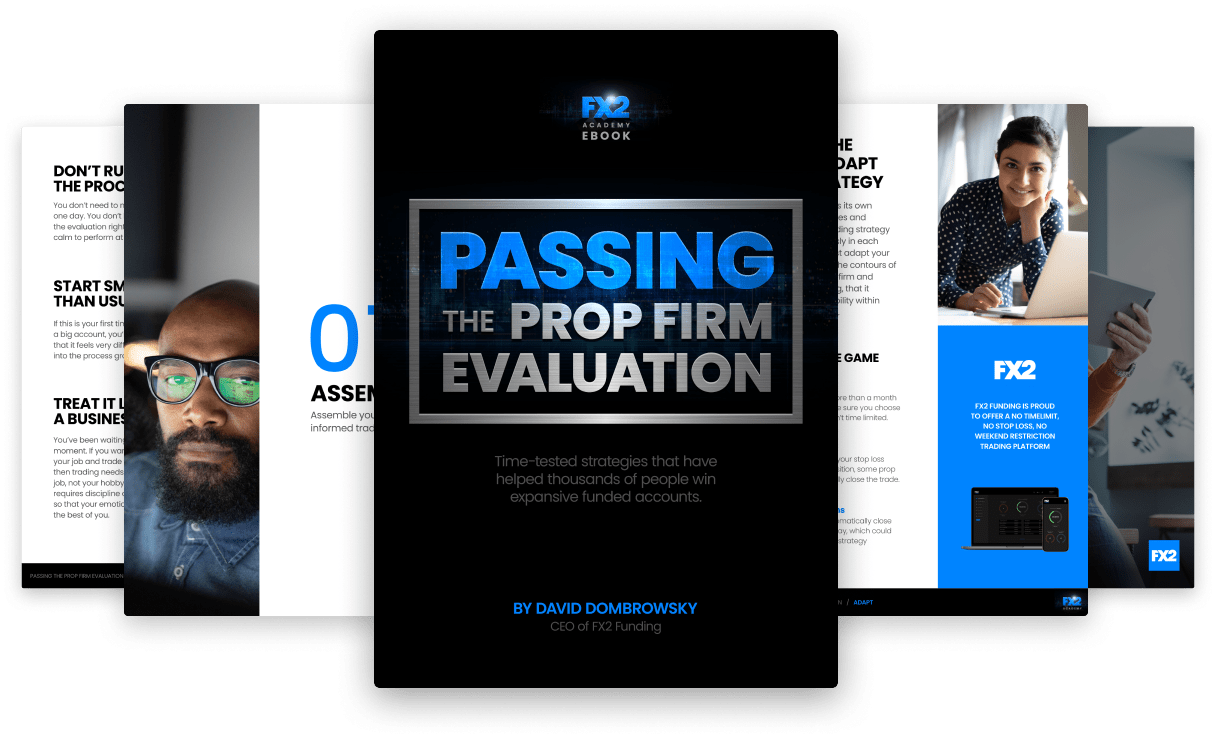Unlocking Money Making Opportunities for Aspiring Traders
Funded trading accounts offer a unique avenue for aspiring traders to enter the markets with significant capital without the associated risks of using their own funds. These accounts are particularly appealing in environments like forex and cryptocurrency trading, where capital requirements can be prohibitive for individual investors.
Understanding Funded Trading Accounts
Funded trading accounts are a form of financial arrangement provided by proprietary trading firms or funding providers. These accounts allow traders to access a substantial pool of capital, provided by the firm, under specific trading conditions and profit-sharing arrangements.
Functionality
The primary functionality of a funded trading account is to provide traders with enough capital to trade at a scale that can lead to significant profits, which are then split between the trader and the funding provider. This setup benefits both parties: the trader gains the ability to trade with more capital, and the firm benefits from skilled traders maximizing their capital’s potential.
Advantages for the Trader
- Lower Risk. Traders are not risking their own capital, which lowers the personal financial risk.
- Higher Potential Returns. Access to increased capital allows for taking advantage of smaller market movements.
- Professional Growth. Working with a funded account often includes access to professional-grade tools, resources, and sometimes even training sessions.
Exploring Funded Trader Programs
Funded trading programs are designed to recruit talented traders and provide them with the capital needed to trade effectively. Below are the two main proprietary trading firm frameworks.
Traditional Proprietary Trading Firms
Traditional Proprietary Trading firms invest their capital through teams of in-house traders. Traders are usually given a set of guidelines and a trading limit, with the firm covering losses and sharing profits. These firms require traders to actually show up to in-house office, and have been around for at least 50 years on wallstreet and other major financial hubs. Usually, traders keep a modest percentage of profits they earn.
Funded Account Evaluations
A new breed of prop firm has emerged in the past decade. These firms rely on technology to democratize access to trading capital, allowing traders from across the world to “earn their keep” through demonstrating high-level trading skills. These firms require a trader to pass a digital account evaluation, which traders pay for. Upon passing the evaluation, they receive funded accounts and can begin trading with the prop firm's capital, often keeping the vast majority of profits they earn.
Check out our article on Forex Trading Advisors.
How to Get a Funded Trading Account
Securing a funded trading account involves several steps, each important in ensuring alignment between the trader’s capabilities and the provider’s expectations. Each company offers a number of different types and frameworks of funded account evaluations. Below is a rough outline of how funded trading programs work.
Eligibility
In order to begin the evaluation process, they first need to ensure that local laws and regulations permit them to trade with a funded account provider. In recent years, regulatory bodies in major jurisdictions such as the United States and Canada have filed suits against Funding Account providers, signaling that these programs may be illegal in their territories. Most countries also require traders to be above the age of 18, or even 21, before trading with funded accounts.
Evaluation Process
Traders take evaluations in order to demonstrate to funding providers that they are talents and responsible traders. Usually, traders will have to reach a profit target, such as 10% profit on the account. They will be required to reach this target before breaching their account through any number of account violations. These include exceeding the maximum daily drawdown (amount an account value can drop in one day) as well as an overall drawdown (total amount of losses in an account). Many prop firms have other restrictions, such as time limits, bad practices (e.g. not putting a stop loss), or any number of other violations specific to each funded account program.
Tips for Success
Be Prepared. Understand the markets you plan to trade and refine your strategies.
Stay Informed. Keep up-to-date with market trends and potential shifts in trading environments.
Focus on Risk Management. Maintain strict discipline in managing risks, as this is often a critical factor in successful funded trading.
Funded Trading Accounts in Different Markets
Funded trading accounts are not confined to a single market. They offer opportunities across various financial landscapes, each with its unique characteristics and potential rewards. Let's explore how funded accounts operate in some of the most popular trading arenas.
Forex Trading
Funded forex trading accounts are common due to the high liquidity and significant leverage associated with forex markets. Traders can benefit greatly from the large capital base, especially when implementing strategies like swing trading or scalping. Learn more about forex trading strategies.
Crypto Trading
The volatility of the cryptocurrency market presents unique opportunities for funded accounts. Traders can leverage the rapid price movements to generate substantial returns, albeit with correspondingly higher risks.
Market Comparison
While forex markets offer stability and liquidity, crypto markets provide high volatility, which might lead to higher gains (or losses). Each market demands different trading styles and risk management strategies.
Funded Trading vs. Personal Live Account
When considering entering the trading world, one major decision involves choosing between a funded trading account and a personal live trading account. Each type has distinct features and implications for risk, investment requirements, profit potential, and strategic approach.
Risk and Investment
One of the primary differences between funded trading accounts and personal live trading accounts lies in the financial risk and initial capital requirements:
Funded Accounts
These accounts provide traders access to significant capital without the need for personal financial outlay, thus markedly reducing the trader's financial risk. Funded accounts are typically provided by proprietary trading firms or through specific trader funding programs which bear the losses incurred, meaning that traders can focus on trading without the anxiety of funding the initial capital.
Personal Live Accounts
Trading with a personal account means using one's own funds. This setup demands a direct financial investment and involves higher personal financial risk. The advantage, however, is complete autonomy over trading decisions without the need to adhere to external restrictions often imposed by funding providers.
Profit Sharing
The structure of profit distribution varies significantly between funded accounts and personal accounts, impacting the potential earnings of traders:
Funded Accounts
While offering the advantage of trading with substantial capital, funded accounts require traders to share a portion of their profits with the funding provider. The split can vary widely, typically depending on the agreement and the success rate of the trader.
Personal Live Accounts
When trading with personal funds, the trader retains 100% of the profits generated from trades. This full ownership over gains can be significantly motivating but comes with the caveat of greater risk exposure.
Utilizing Leverage
Leverage is a tool used in both funded and personal trading accounts to amplify trading results, but it comes with its nuances:
Leverage in Funded Accounts
Often, funded accounts come with predefined leverage limits set by the provider, designed to balance the potential returns with the risk of large losses. Traders need to operate within these limits, which might restrict certain high-risk strategies.
Leverage in Personal Accounts
Traders have the freedom to choose their own leverage ratios, which can vary from low to extremely high. While this offers flexibility, it requires a solid understanding of leverage's risks and rewards to avoid devastating losses.
Check out our comprehensive guide on leverage trading.
Risk Management
Implementing sound risk management strategies is vital regardless of the account type, but the specifics can differ:
Risk Management in Funded Accounts
Here, traders may be required to adhere to strict risk management protocols set by the funding provider. These might include limits on daily losses or rules on stop-loss settings, which help protect the capital of the funding firm.
Risk Management in Personal Accounts
Traders have the freedom to develop and apply their own risk management strategies. This flexibility allows for customized risk parameters but requires a high level of discipline to ensure that risks are kept within manageable limits.
Profit Strategies
The development of profit strategies should always be aligned with the account type to optimize results:
Profit Strategies in Funded Accounts
Strategies here often need to be robust and well-documented, sometimes requiring approval from the funding provider before implementation. This can limit some speculative strategies but encourages a disciplined approach to trading.
Profit Strategies in Personal Accounts
Traders can be more experimental and dynamic with their strategies. They can quickly adapt to market conditions without needing external approvals, allowing for rapid response to trading opportunities.
Conclusion
Leveraging a funded trading account effectively requires a deep understanding of leverage mechanics, impeccable risk management practices, and continuous adaptation of profit strategies. By mastering these aspects, traders can maximize their potential in the trading world, turning market opportunities into substantial gains. By utilizing the resources and capital provided by funded accounts judiciously, traders set the stage for a successful and sustainable trading career.




